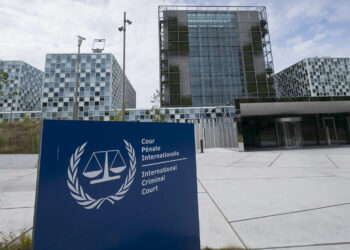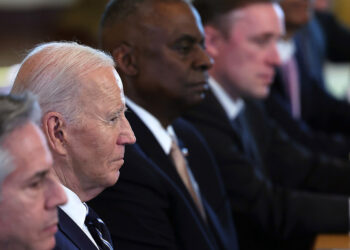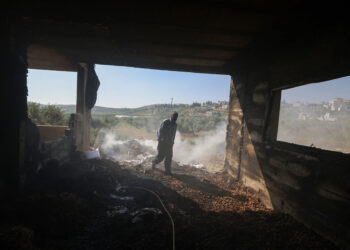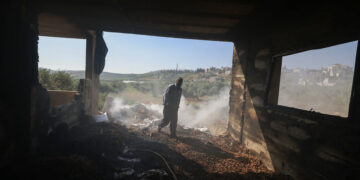Solafa Magdy is an Egyptian journalist and human rights defender. A former political prisoner in Egypt, she was detained along with her husband from 2019 to 2021.
Editor's note: The following essay is adapted from remarks that Solafa Magdy delivered at DAWN's recent event in Washington to commemorate the life and legacy of Jamal Khashoggi. Magdy was recognized, along with journalist Ayman Mohyeldin, with DAWN's inaugural Integrity Award, celebrating voices who best exemplify Khashoggi's commitment to securing freedom and democracy in the Middle East and North Africa.
*
The night I was abducted on the street in Cairo by the unforgiving hands of Egypt's security forces, I was handcuffed, blindfolded and told I must forget my name. The number 99—my prison ID—would be my new identity. Yes, Egyptian security officers label us with numbers behind those detention walls.
When I remember the longest, darkest nights inside a cold, unforgiving cell, when the prison doors closed in on us for months, when I felt like I was about to die from starvation and cold, sharing the same cell with 150 other women in al-Qanater women's prison, I still think of that number.
But amid that darkness, I also remember the resistance and the determination to hold on to life. Because outside those prison walls, there were people who cared about me and demanded our freedom. I had to stay strong, to never allow myself to be reduced to a mere number in the prison system by a government that denied our existence as political prisoners.
I am a survivor of an ordeal that no journalist should ever go through. My crime was that of doing my job—speaking truth to power. But according to the Egyptian government's perspective, that was enough to label me a terrorist and strip me of my freedom, separating me from my young son, Khaled, for nearly two years. When I was detained in November 2019, following a raid of independent news outlets in Cairo, so was my husband, photojournalist Hossam al-Sayyad. Khaled, who was only seven years old, was left without either of his parents.
I am a survivor of an ordeal that no journalist should ever go through. My crime was that of doing my job—speaking truth to power.
- Solafa Magdy
In prison, my cellmates, many of whom were women journalists, and especially my fellow prisoner in suffering Hassiba Mahsoub, became my source of inspiration. Their stories of resilience in the face of injustice are a testament to the strength of the human spirit—and a stark reminder of the urgent need for justice and equality in Egypt and across the Middle East and North Africa, not just for women journalists but for all who dare to speak truth to power.
Many people have asked me why I chose to become a journalist in Egypt, a country where the risks under the current regime of President Abdel Fattah al-Sisi are well-documented. The answer is simple yet profound: I believe in the transformative power of the truth, no matter how uncomfortable or challenging it may be.
As an Egyptian journalist, I witnessed the struggles of my fellow citizens, the suppression of free speech, and the erosion of fundamental human rights. It was clear to me that silence in the face of injustice was not an option. In Egypt, journalism became a path to justice and salvation.
My unjust imprisonment only reinforced my belief in the fundamental principles of journalism and human rights. Journalism is not just a profession; it's shining a light on the darkest corners of society. It is about giving a voice to the voiceless and oppressed, a platform to the silenced. Journalism is not just about reporting facts; it's about the public holding the powerful to account.
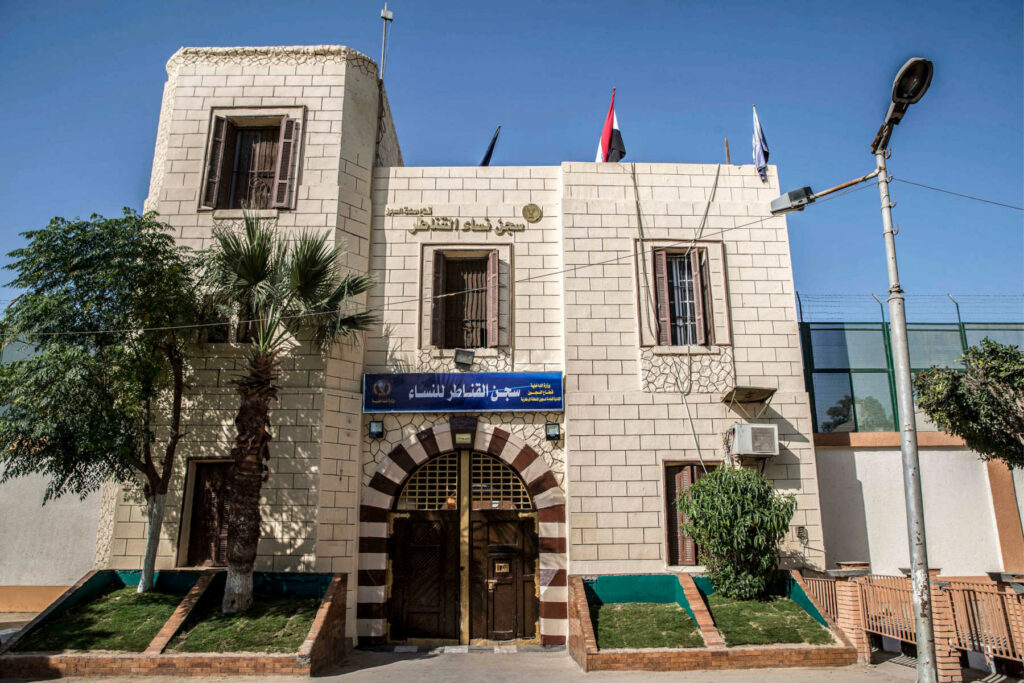
Too many brave journalists in the Arab world have had to risk their lives for the truth and pay the ultimate price, especially our late colleague Jamal Khashoggi.
Without the support of others advocating for my release, I wouldn't be here today, continuing to do what I believe in as a journalist. But I also wouldn't have survived in prison without the care and support of my cellmates, my fellow women in suffering, who now deserve my sacrifice and commitment for their release. They remain in prison in Egypt, cruelly behind bars and reduced to a number, facing the same threat of torture I did. They must be freed too.
The Egyptian government must stop treating journalists, human rights activists and anyone who dares to protest as mere numbers in prison. It must recognize us as people with faces, stories and lives. Although I cannot go back to my homeland, I remain steadfast in my belief that one day, I'll return to Egypt with my head held high.













